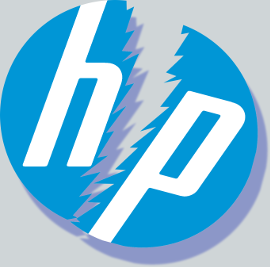
The time has come for HP to roll out the axes and chop itself up into smaller units again. The last time this happened was in 1999 when the real HP, the portion of the company dedicated to measurement instruments, was spun off as Agilent Technologies. Funny, as about that same time, HP was buying up Compaq, the very business unit it’s now considering spinning off.
I do have to say, when Meg Whitman came in as CEO of HP, I was convinced it was too late to do anything with the company. Sure, HP is monstrously large—one of the largest companies in the world—but its various pieces and parts, with the exception of its printing arm, have not demonstrated leadership in anything in a long time.
Certainly, its PCs and servers do lead markets from time to time, but that is primarily a function of commoditization, and HP building the most cost-effective machines out there. Thus, HP’s real hardware talent over the past 15 years has been mostly low margins, not innovation.
I even have an HP PC under my desk. Why? Because it’s my gaming PC, and I paid almost as much for the AMD graphics card as I did for the whole PC.
But that’s the business HP wants to be rid of. There should be little trouble selling this portion of the company off. Plenty of competitors, or companies who have large sales and can live with low margins, could be players. But what does that leave behind?
A purely enterprise company, which could be one of the best things that’s ever happened to HP.
(Related: HP announces split into HP Inc. and HP Enterprise, another 5,000 layoffs )
Remember, this is a company that got its start selling oscilloscopes and other instruments to the folks that actually built Silicon Valley. Having a chance to again focus only on the enterprise user could give HP the stable footing it needs to regrow into one of the world’s largest firms.
The only aspect of this that worries me is the fact that Whitman seems to want to keep PCs and printers together as a business. That doesn’t make as much sense to me. I truly wish HP would just spin printers off into its own business. An independent printer business could restart the innovation that died so long ago.
But that’s beside the point. What’s really important here is that the enterprise side of the business no longer be saddled with making up for the losses in HP’s poorly planned consumer market efforts. From their failed tablet business, to the endless efforts by HP to get a foot into new consumer markets like flash drives, computer accessories, the rumored entry into the mobile phone markets, and even the company’s years of leadership in the utterly dead-on-arrival palm-top market, HP has a long track record of trying to build in the consumer market. Sometimes it does succeed. I suppose you could call the iPaq a winner: it was the best, most powerful handheld device for a long time. But in the end, it didn’t matter at all because HP never produced an iPaq with any phone capabilities. Thus, the platform died when the iPhone arrived.
Similarly, HP’s efforts in the tablet market came from a repurposing of an existing handheld market leader, Palm. But in the end, this platform failed miserably as well.
Meanwhile, HP business services and its other enterprise offerings seem to be doing just fine. The company has long been able to perform there similarly to IBM. Of course, IBM threw its consumer products away years ago as well. One can only expect IBM is the model HP is hoping to emulate here.
So while HP looks for someone to buy up its consumer services, end users of HP’s enterprise products should see this as a good thing. It can only mean that the resulting enterprise company will focus more heavily on what its enterprise customers need, and you can bet they won’t be shoehorning unsold desktops and printers into enterprise contracts anymore. That’s a good thing.






